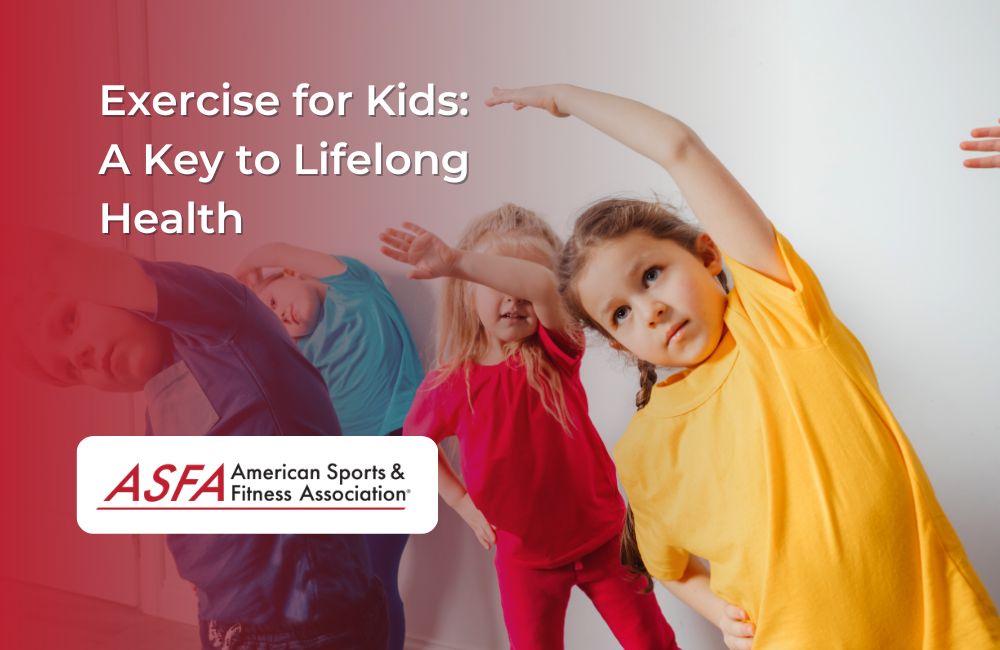
Exercise for Kids: A Key to Lifelong Health
Exercise is an essential part of a healthy lifestyle. It helps you stay fit, improves your mood and mental health, and can even help prevent disease down the road. But many people feel that exercise is only necessary for adults—and forget about it when it comes to kids! Yet exercise is just as important for children as it is for adults, and should be integrated into their daily lives from an early age. Here are some simple exercises for kids that will boost their overall health:
The benefits of exercise
The benefits of exercise are many, and they extend far beyond the obvious physical ones.
Exercise can help you feel better about yourself and your body. It can increase confidence, self-esteem, and a sense of accomplishment as well as improve moods by releasing endorphins--the brain's natural "feel good" chemicals that make us happier when we exercise regularly. Exercise also helps keep stress levels down by increasing the release of anti-stress hormones like serotonin and dopamine which make us feel less anxious or depressed!
Exercise improves brain function by increasing blood flow throughout the body including to areas such as the hippocampus (involved in memory) and frontal cortex (involved with executive functions). Studies show that regular aerobic activity has been shown to slow down cognitive decline later in life for people who have already developed dementia symptoms such as Alzheimer's disease.
How to get kids moving
You can help your child get moving by:
Making it fun. Kids love to move, so make physical activity fun for them. Play games like tag or hide-and-seek outside, or do jumping jacks or pushups together in the living room!
Making it routine. If you have an active lifestyle and want your kids to follow in your footsteps, set aside time each day for exercise as a family--even if it's just walking around the neighborhood after dinner together every evening before bedtime. The more consistent they are with their activity level over time, the better they'll be able to stick with positive habits later on in life when there may be more distractions pulling at their attention spans (like video games).
Getting involved in planning activities together as a family unit; could mean going hiking on weekends instead of watching TV all day long while eating junk food snacks while sitting down on couches all weekend long which is highly unlikely unless there's something wrong medically due out there somewhere along those lines...
Are you doing it right?
If you're a parent, it's important to remember that exercise is supposed to be fun. Your child should be enjoying this time with you, so make sure it feels like playtime rather than punishment or drudgery.
You also need to keep things short and sweet--no more than 20 minutes at first! You might want them to do more later on (and they will), but getting used to the idea of exercise is tricky enough without having them spend more time than necessary in the beginning.
These benefits are more important than ever in today's world where kids spend so much time indoors playing video games or watching TV instead of getting outside!
It's also crucial that your child not get bored with their workout routine: if they're doing something new each day, they'll be less likely to lose interest over time. If possible, try mixing up different types of exercises so that each one offers something unique--for example, one day could be yoga while another might be running around outside with friendsExercise can help you release stress and relax. Exercise can help you sleep better at night, which is important for your health in many ways. Exercise can make you live longer! And if that weren't enough, it also makes the quality of life better for people who do it regularly (as long as they don't overdo it).
All sorts of activities count as exercise--walking around outside or riding a bike are good examples; playing sports like soccer or basketball are even better ones; anything that gets your heart rate up and keeps moving is great! The key thing here is just to get moving more often than not so that your body gets used to doing something active every day instead of sitting around all day long being lazy.
Exercise is a crucial part of your child's development, and it will help them stay healthy for the rest of their lives. As we've seen, exercise can improve your child's brain function and physical strength as well as boost their self-esteem. So take some time to plan activities that get your kid moving--and remember: it doesn't matter if they don't like sports at first or aren't very good at them. Remember: the point here isn't just about winning; it's about having fun while staying healthy!




